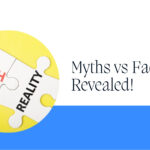Most people have experienced the feeling of being self-conscious in a public setting. Whether it’s giving a presentation or walking into a party, it’s easy to feel like everyone is watching and judging your every move. This phenomenon is known as the spotlight effect, and it can have a significant impact on how people behave in social situations.

The spotlight effect is the tendency for people to overestimate how much attention others are paying to them. This means that when people feel self-conscious, they often assume that everyone around them is noticing their flaws and mistakes. In reality, however, most people are too focused on their own thoughts and concerns to pay much attention to others. This means that people are often much less noticeable than they think they are.
Understanding the Spotlight Effect

Psychological Roots
The Spotlight Effect is a psychological phenomenon where people tend to believe that others are paying more attention to them than they actually are. This can lead to feelings of self-consciousness and anxiety, as individuals may believe that they are being judged or scrutinized by others.
The roots of the Spotlight Effect can be traced back to a number of psychological factors, including social comparison, self-esteem, and cognitive biases. People often compare themselves to others in social situations, and may feel that they are not measuring up to others’ expectations. This can lead to a heightened sense of self-awareness and a belief that others are paying close attention to their every move.
Additionally, individuals with low self-esteem may be more likely to experience the Spotlight Effect, as they may be more sensitive to perceived criticism or rejection from others. Finally, cognitive biases such as the illusion of transparency and the false consensus effect can also contribute to the Spotlight Effect, as people may overestimate the extent to which others can read their thoughts or share their opinions.
Common Misconceptions
Despite its prevalence, the Spotlight Effect is often misunderstood. Many people believe that others are constantly judging them, when in reality, most people are too preoccupied with their own thoughts and concerns to pay much attention to others.
Another common misconception is that the Spotlight Effect is always negative. While it can certainly lead to feelings of self-consciousness and anxiety, it can also be a positive force. For example, the belief that others are paying close attention to one’s work can motivate individuals to perform at their best and strive for excellence.
In conclusion, understanding the psychological roots and common misconceptions of the Spotlight Effect can help individuals to better navigate social situations and reduce feelings of self-consciousness and anxiety. By recognizing that others are not always paying as much attention as we may think, we can focus on being our authentic selves and enjoying our interactions with others.
Perception vs. Reality

Social Anxiety and Self-Focus
People tend to overestimate how much others notice and pay attention to them. This is particularly true for those with social anxiety, who may be hyper-focused on their own behavior and appearance in social situations. They may believe that others are scrutinizing them, when in reality, people are often more focused on themselves and their own concerns.
Overestimating Public Awareness
The spotlight effect can also lead people to overestimate how much others are aware of their actions and behavior. For example, someone may feel self-conscious about a minor mistake they made at work, believing that everyone around them noticed and is judging them. In reality, most people are likely unaware of the mistake and are not paying close attention to the person’s actions.
It’s important to remember that our perception of how much others are paying attention to us may not match reality. By recognizing the spotlight effect and challenging our assumptions about how much others notice us, we can reduce our self-consciousness and feel more comfortable in social situations.




